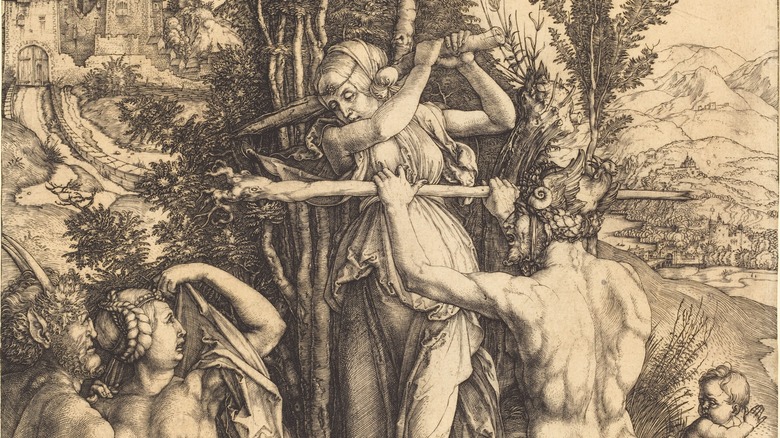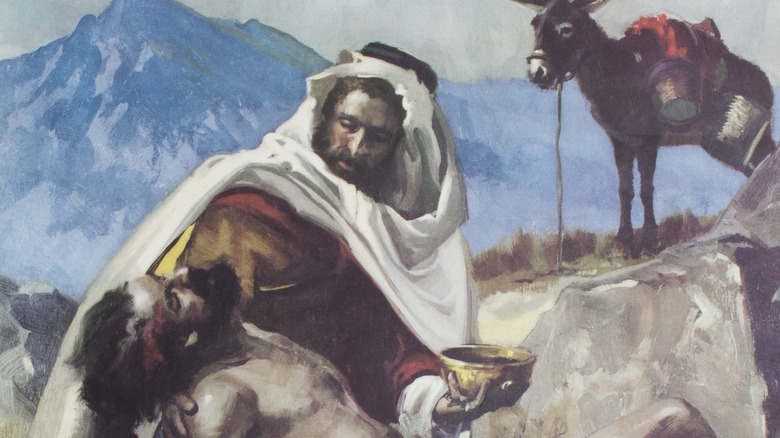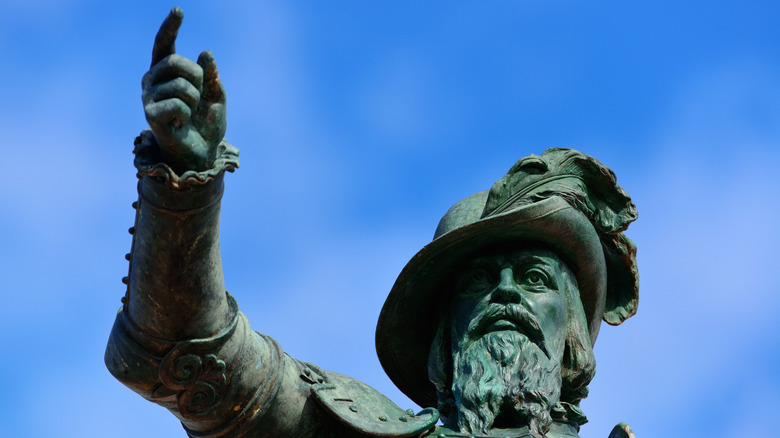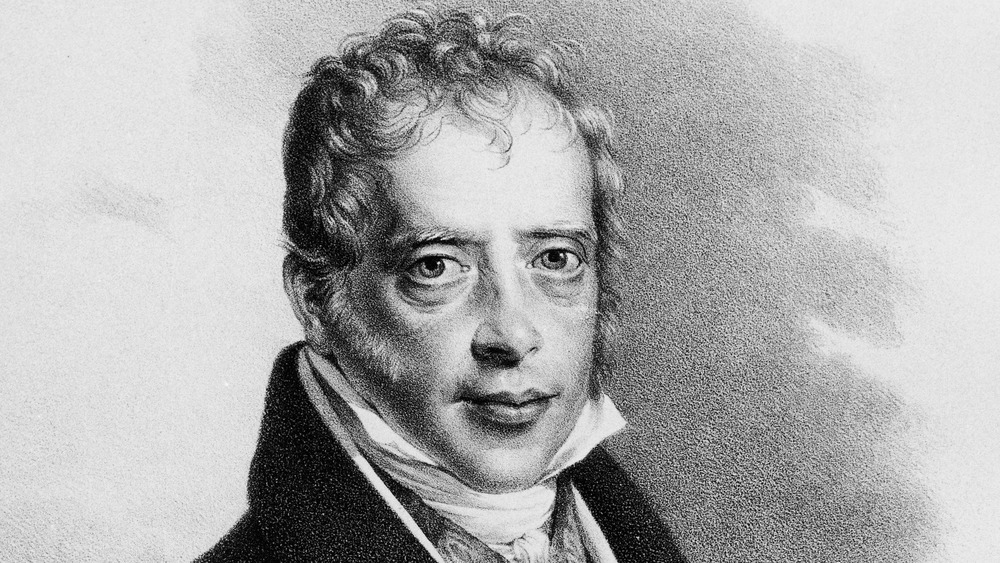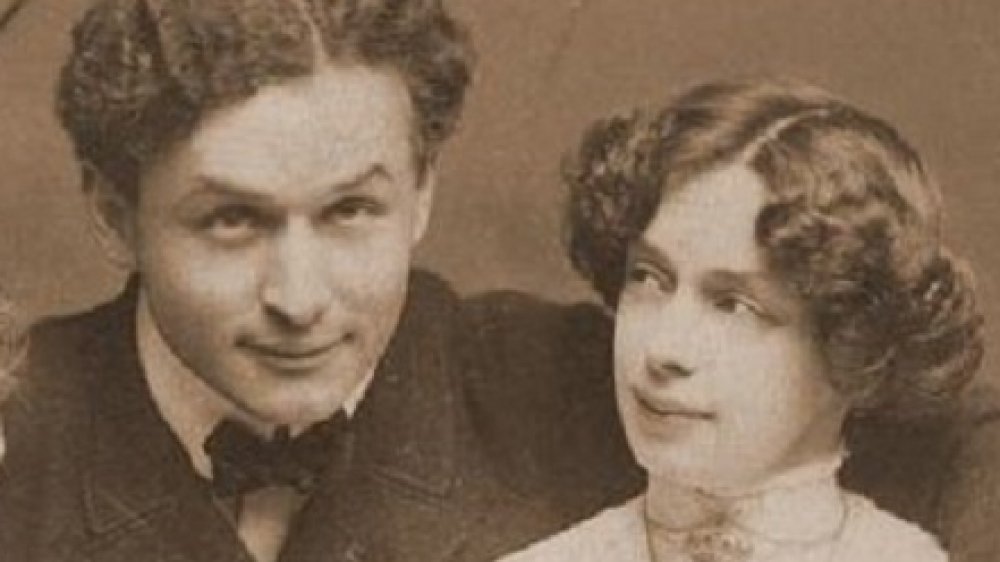
The Real Reason Jesus Taught In Parables
“Good samaritan.” “Prodigal son.” “Good shepherd.” Even the word “talent” (via America Magazine) — all of these are words and phrases you’d never have encountered without the parables of Jesus. Whether or not you’re a fan of Christianity, it’s clear that the teachings of Jesus of Nazareth have impacted the world in literally countless ways, right down to the words we use. According to data analysts Steven Skiena and Charles B. Ward (writing in The Guardian), Jesus objectively holds the title of “most significant figure in history”, and he was known mainly for two things (ignoring the whole rising-from-the-dead thing for a second): performing miracles and teaching in parables.
The “miracles” aspect is pretty easily explained: If you’re going to claim to be divine, you better have some cool tricks to back it up. But what were the parables for? Like Bob Dylan, Jesus stubbornly refused to just say what he meant, instead turning his teachings into allegorical stories that illustrated his spiritual and moral ideas. So what gives?
For starters, Jesus didn’t invent the parable. Both the ancient Greek and ancient Hebrew worlds have clear examples of them, and the Old Testament has quite a few of its own. Still, Jesus sort of did for parables what Shakespeare did for sonnets. According to religious studies professor George A. Barton (writing in The Biblical World), while parables exist in other religious and philosophical traditions, “The parables of Jesus are so unique that they form a class by themselves.” Let’s take a look at the history of the parable — and why Jesus was so fond of the form.
Jesus didn't invent parables
As we’ve said, Jesus didn’t invent parables out of whole cloth — people have been telling short stories with lessons about as long as they’ve been able to talk. Early examples can be seen in Aesop’s fables, like “The Ant and the Grasshopper” (via Library of Congress). And while fables differ from parables — fables use talking animals or objects, while parables are more realistic — the forms are clearly related (via DifferenceBetween.com)
Similarly, both the classical and Jewish worlds — whose collision served as the context of Jesus’s ministry — have strong traditions of parables. On the pagan side, the Greek philosopher Prodicus famously told the story of “Hercules at the Crossroads,” in which the mythological hero meets personifications of vice and virtue and is asked to choose between an easy life and a noble life.
The Old Testament, according to the Jewish Encyclopedia, also has its share of parables and fables (collectively referred to in Hebrew as “mashal”). For instance, in 2 Samuel 12, the prophet Nathan rebukes David for his rape of Bathsheba and his murder of her husband Uriah with a story about a rich man who steals and slaughter’s a poor man’s only lamb. On the fable side, Judges 9 has a memorable tale about the trees looking to crown a king. The lesson is that the only individual who could want to be a king — represented by the thorn bush — is probably going to be someone with nothing else valuable to offer.
So why parables?
So why parables? The most obvious explanation is that Jesus’ audience would have been familiar with them — as we said, he didn’t invent the form. According to Earl Crow in the Winston-Salem Journal, another reason could have been to simply get attention. It’s easier, after all, to “sell” people a story than it is to sell them a theological or moral lesson.
On the other hand, Titus Kennedy suggests in Drive-Thru History Adventures that Jesus’ primary motivation was to conceal his meaning from the authorities. After all, being able to say, “Hey, I’m only telling stories here,” would make it harder to arrest him for heresy or insurrection. Kennedy also suggests that by talking about more concrete things, as opposed to explicitly religious ideas, Jesus was able to circumvent listeners’ prejudices.
Of course, all of this theorizing sort of ignores that, in the Gospel of Matthew, Jesus clearly tells his disciples why he teaches the way he does: “To you it has been given to know the secrets of the kingdom of heaven, but to them it has not been given. … This is why I speak to them in parables, because seeing they do not see, and hearing they do not hear, nor do they understand.” So, according to Jesus, he taught in parables to make sure only the right people understood. Given that, it’s a little weird that so many of them have become so iconic — but then again, no one really understands “Moby Dick,” either.

What Really Happens When A Person Is Excommunicated

Most Popular Dog Breeds In America
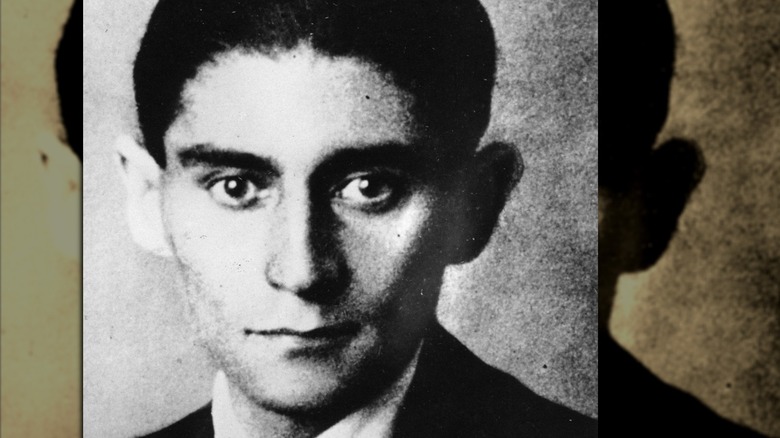
Franz Kafka's Tragic Real-Life Story

This Is The Biggest Hammerhead Shark Ever Caught On Camera

What The Last Few Months Of Marilyn Monroe's Life Were Like

Olympic Skateboarding: Everything You Need To Know Before Watching

Here's Why You Shouldn't Swallow Your Own Blood

Did Dorothea Puente Ever Confess To Her Murders?

Tragic Details About The House Of Windsor

Why Halloween Is Terrible For The Environment
